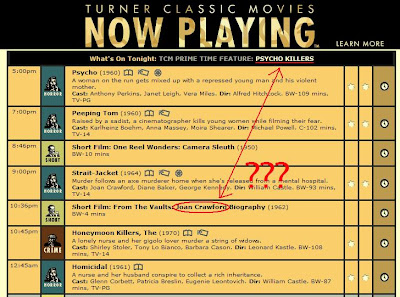1929's
Rio Rita and 1930's
Dixiana are two films that are in many respects quite similar. They are both RKO Radio Pictures productions, they are both musicals, they both feature the talents of Bebe Daniels and the comedy duo of Bert Wheeler and Robert Woolsey, and both feature lavish technicolor finales. They are, of course, not without their differences. Both are enjoyable early talking-picture gems in their own right, but which one was better? That's what we're here to find out.

Rio Rita is a film adaptation of the 1927 Ziegfeld stage production of the same name. Plot-wise
Rio Rita isn't anything to write home about--a fairly trite love wherein Rita Ferguson (played by Bebe Daniels) is the object of the affections of Jim Stewart, Texas Ranger (played by John Boles, who, sad to say, doesn't kick anyone in the face) and Ravenoff, the local Generalissimo (played by Georges Revenant). I haven't met too many Mexicans named Ferguson and Ravenoff, but that's movie magic for you. The film is is made more interesting, however, by the fact that Ziegfeld himself produced the film, with the result that
Rio Rita has all the glitz and glamor you'd expect from a a production bearing the name of the man who masterminded the numerous installments of the
Follies.
On the other hand, the Ziegfeld touch also means that Rio Rita features more unnecessary singing and dancing than karaoke night at your local dive bar. Even with a few reels missing,
Rio Rita does drag on at times, especially during the musical numbers. Bebe Daniels has a fine singing voice and is certainly easy on the eyes, but her faux-Mexican accent is a tough pill to swallow--she sounds rather like a distaff Speedy Gonzalez.
Not only does the Wheeler and Woolsey subplot ultimately end up being more interesting than the main story but the duo (along with Dorothy Lee) truly seem to carry the movie at times. Still, if nothing else, the technicolor climax is rather a treat to look at. Ultimately,
Rio Rita is a lot like the
Histories of Polybius--fragmentary, and perhaps more interesting as an historical document than as a great work in and of itself.
Dixiana, meanwhile, takes place in the idyllic antebellum South that never actually existed; New Orleans, specifically. Unnaturally jubilant negro slaves, chivalrous Southern gentlemen and elegant Southen Belles abound. Bebe Daniels plays Dixiana, a circus performer with whom Carl Van Horn (Everett Marshall) and Royal Montague (Ralf Harolde) are both smitten (are you seeing the pattern here?). Van Horn is the son of Pennsylvania Dutchman who has come into the ownership of a plantation, whereas Montague seems to have no
raison d'etre beyond simply being an all-purpose scoundrel (there's a word I don't get to use as nearly as I'd like to).
Wheeler and Woolsey reprise their roles as the comic relief, and again wind up being more entertaining than the main plotline of the film, though fortunately by a less expansive margin this time around. Daniels and the rest turn in good to decent performances, with the possible exception of Everett Marshall--sure, he can belt the notes out like there's no tomorrow, but he has a habit of singing out of the corner of his mouth, which has the unfortunate effect of making him look alternately perplexed and constipated. He's also a much better singer than an actor.
I was also a little disappointed by the ending--it had the potential for some serious tragedy, when during Mardi Gras Dixiana puts on Van Horn's costume just moments before he is set to duel with the unscrupulous Montague. I can only imagine what would have happened if, to save the life of her lover, Dixiana were killed in the duel in Van Horn's place. Hell, I would have been just as content if Dixaina were to kill Montague in the duel! But no; this is, after all, a romantic-musical-comedy-drama sort of affair, so a tragic ending is not in the cards (and besides, busting a cap up in a motherfucker is terribly unladylike, even if said motherfucker is a punk-ass bitch of no mean stock). I won't give away what actually does happen, but I don't think you'll be shocked if I tell you that the ending is a happy one.
Although it's blatant,
Gone with the wind-esque racism is perhaps hard for a modern audience to swallow,
Dixiana is probably the better of the two films. Not only is Bebe Daniels much more believable as a Southern Belle than she is as a Mexican Seniorita, but the musical numbers in
Dixiana are by and large better than their
Rio Rita equivalents. Where the two films are evenly matched, however, is their technicolor sequences which, though they are of the more primitive two-strip variety, are nonetheless quite charming.
Their respective shortcomings aside,
Rio Rita and
Dixiana are both significant achievements in cinema history--not only are they among the earliest film musicals, but they are also among the few technicolor efforts of the pre-code era. Were they not entertaining in their own rights, that fact alone would make them worth watching at least once.
 And just what are you insinuating, Turner Classic Movies? I know she wasn't the most stable personality in Hollywood, but that's a bit far-fetched, even for me. Then again, who knows what deep, dark secrets those big eyes were hiding?
And just what are you insinuating, Turner Classic Movies? I know she wasn't the most stable personality in Hollywood, but that's a bit far-fetched, even for me. Then again, who knows what deep, dark secrets those big eyes were hiding?









